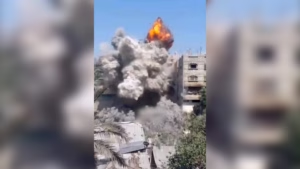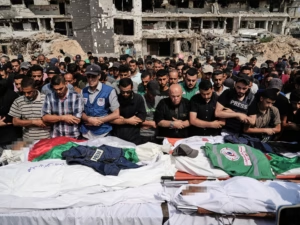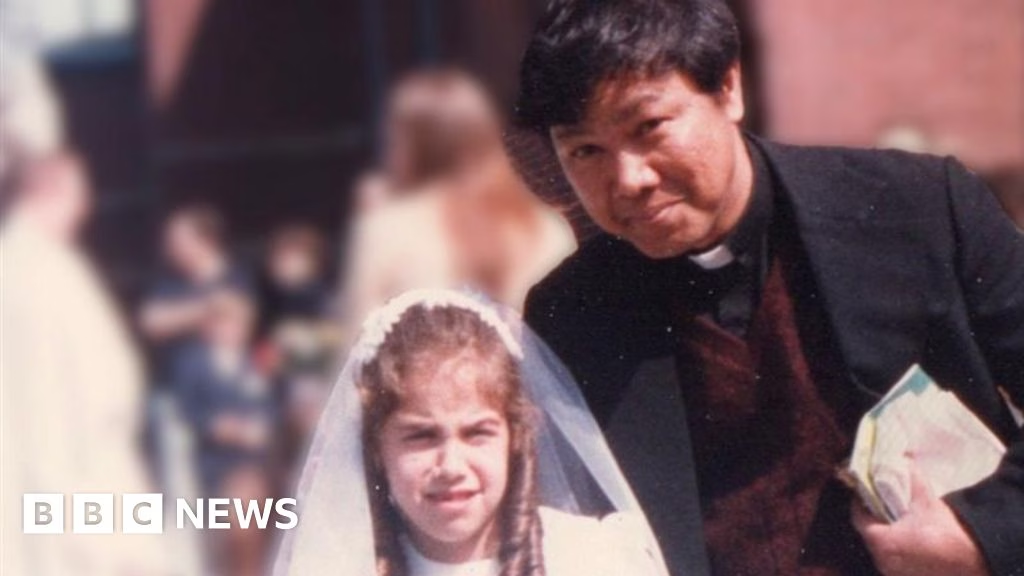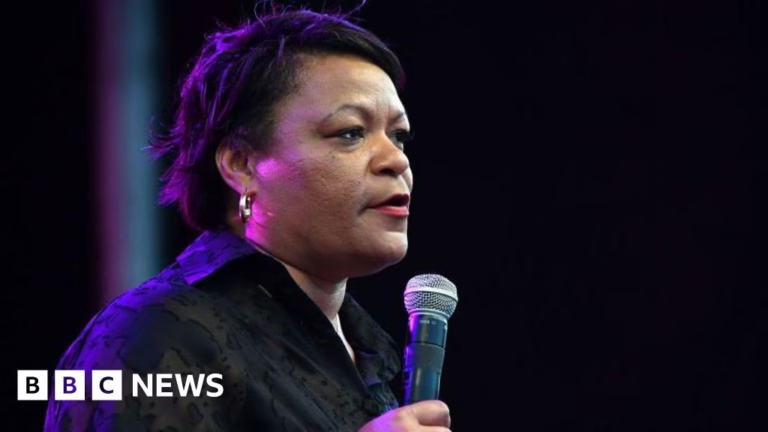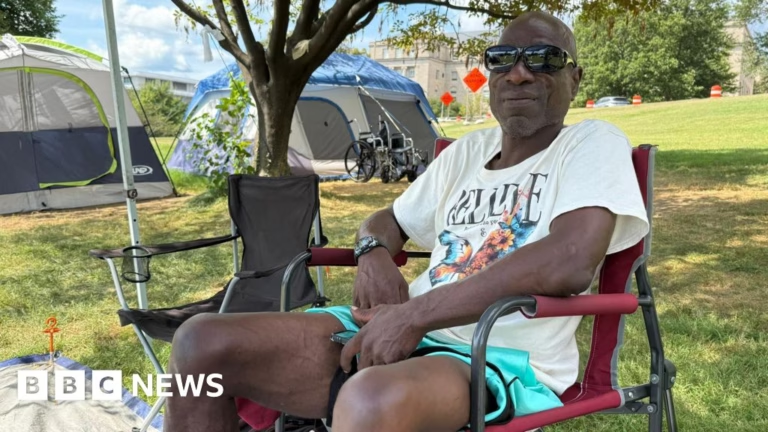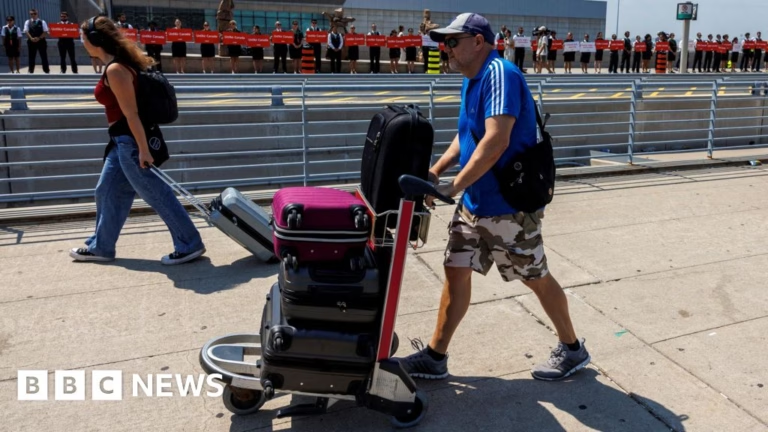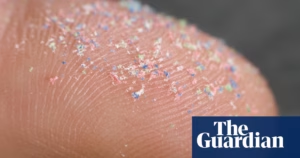North America correspondent

MacPherson family
As 135 cardinals meet in Rome to decide the next pope, questions about the legacy of the last one will loom large over their discussions.
For the Catholic Church, no aspect of Pope Francis’ record is more sensitive or contentious than his handling of the sexual abuse of children by members of the clergy.
While he’s widely acknowledged to have gone further than his predecessors in acknowledging victims and reforming the Church’s own internal procedures, many survivors do not think he went far enough.
Alexa MacPherson’s abuse by a Catholic priest began around the age of three and continued for six years.
“When I was nine-and-a-half, my father caught him trying to rape me on the living room couch,” she told me when we met on the Boston waterfront.
“For me, it was pretty much an everyday occurrence.”
On discovering the abuse, her father called the police.
A court hearing for a criminal complaint against the priest, Peter Kanchong, accused of assault and battery of a minor, was set for 24 August 1984.
But unbeknownst to the family, something extraordinary was taking place behind the scenes.
The Church – an institution that wielded enormous power in a deeply Catholic city – believed that the court was on its side.
“The court is attempting to handle the matter in such a way as to help Father Peter and to avoid scandal to the Church,” the then-Archbishop of Boston, Bernard Law, wrote in a letter that would remain hidden for years.
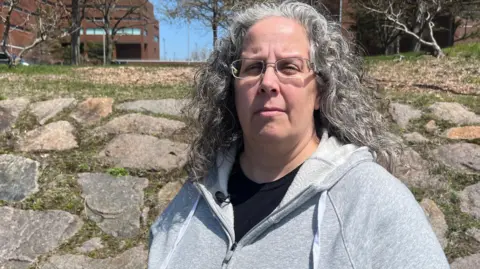
Alexa MacPherson
Reflecting on the events of more than four decades ago, Ms MacPherson recognises that her abuse took place long before Francis became pope.
But over that same period, through a series of global scandals which are still unfolding, the issue of the systemic sexual exploitation of children has become the modern Church’s biggest challenge.
It is a challenge she believes Pope Francis failed to rise to, as she made clear when I asked her how she had reacted to the news of his death.
“I actually don’t feel like I had much of a reaction,” she replied.
“And I don’t want to take away from the good that he did do, but there’s just so much more that the Church and the Vatican and the people in charge can do.”
Uncovering the abuse
The 1984 letter from Archbishop Bernard Law was addressed to a bishop in Thailand.
Mentioning the accusation of “child molestation” it was written two months after the Boston court hearing, which had indeed concluded without scandal for the Church.
Peter Kanchong – who was originally from Thailand – had been spared from formal criminal charges and given a year’s probation on the condition that he stayed away from the MacPherson family and underwent a course of psychological therapy.
The Archbishop’s letter, however, noted that even the Church’s own psychological evaluation had determined that the accused priest was “not motivated and unresponsive to therapy” and should therefore be “forced to face the consequences of his actions” under both civil and Church law.
But instead of acting on that advice, he implored the Thai bishop to immediately recall Peter Kanchong to his diocese in Thailand, mentioning for a second time the risk of “grave scandal” if he were to remain in the US.
